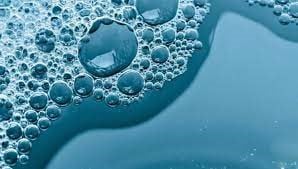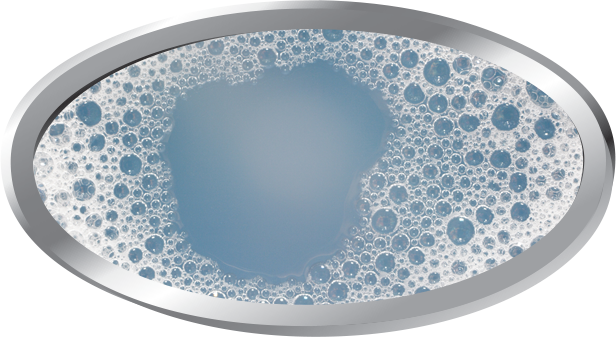Choosing the Best Defoamers for Your Manufacturing Line
Choosing the Best Defoamers for Your Manufacturing Line
Blog Article
The Function of Defoamers in Enhancing Product Quality and Efficiency
Defoamers offer as necessary ingredients that reduce this concern, making certain smoother production operations while boosting the aesthetic and functional attributes of the last products. The choice of the proper defoamer can be essential to attaining optimum results, increasing vital questions about formulation compatibility and performance metrics that merit more exploration.
Understanding Defoamers
Recognizing the role of defoamers is vital for preserving product quality across numerous industries. Defoamers are chemical ingredients developed to protect against the formation and reduce of foam in fluid systems, which can negatively impact procedures such as blending, filling, and surface tension. Frothing can cause inadequacies, product defects, and jeopardized visual allure, making defoamers a critical part in manufacturing procedures.
In industrial applications, defoamers aid to enhance item consistency and security. In the paint and layers industry, foam can interfere with the application process and the final surface. Similarly, in food and drink manufacturing, too much foam can prevent bottling and product packaging efficiency (defoamers). The effective usage of defoamers not just makes sure smoother production processes however also adds to superior product efficiency.
Moreover, the option and formulation of a defoamer have to line up with specific application demands, such as compatibility with other ingredients, performance under varying temperature level and pH conditions, and possible regulatory constraints. Ultimately, comprehending defoamers' features and their relevance in various formulas is crucial for enhancing manufacturing and guaranteeing the best output.
Sorts Of Defoamers
Defoamers can be categorized right into several types based on their composition and system of action. The primary kinds consist of silicone-based, non-silicone organic, and not natural defoamers.
Silicone-based defoamers are amongst the most efficient, mainly as a result of their capacity to spread promptly on the fluid surface and interrupt foam development. Their one-of-a-kind chemical structure permits superior stability, making them suitable for high-temperature applications and settings with varying pH degrees.
Non-silicone organic defoamers, typically made up of fatty acids or natural oils, are valued for their biodegradability and lower toxicity. These are generally used in food and drink applications where safety and ecological influence are critical.
Not natural defoamers, that include materials like talc or calcium carbonate, act by boosting the thickness of the liquid, consequently decreasing foam security. They are frequently made use of in commercial procedures where compatibility with other materials is not a worry.
Each type of defoamer has distinct benefits and limitations, enabling for tailored options depending upon the certain lathering concerns come across in numerous applications. Understanding these distinctions is essential for optimizing performance and achieving wanted item high quality.
Applications Across Industries
Many markets take advantage of defoamers to enhance item high quality and operational effectiveness. In the food and drink field, defoamers are important in processes such as developing and milk production to stop foam formation, which can bring about inadequacies and product disparity. By controlling foam, manufacturers can ensure better return and a much more uniform item.
In the pharmaceutical industry, defoamers play a crucial function in the solution of liquid drugs, where too much foam can restrain blending and exact dosing. Their use assists maintain the integrity of the formulations and promotes smoother production processes.
The paint and finishes industry also relies upon defoamers to boost the efficiency of items throughout application. By reducing foam, these ingredients make certain a smoother surface and boost the visual qualities of the end product.

Benefits of Making Use Of Defoamers
While the application of defoamers differs across industries, their advantages constantly improve product high quality and process efficiency. One considerable advantage is the decrease of foam formation throughout producing procedures, which can otherwise lead to manufacturing hold-ups and disparities in item top quality. By decreasing foam, defoamers make it possible for a smoother flow of materials, promoting much more efficient procedures and reducing the chance of equipment malfunctions.
Furthermore, making use of defoamers can improve the appearance and structure of end products. In fields such as coverings, paints, and food handling, excessive foam can compromise the aesthetic appearances and overall quality, while the proper defoamer application makes sure an uniform finish and preferable characteristics. Additionally, defoamers can contribute to cost financial savings by decreasing waste during production and maximizing using raw products (defoamers).

Picking the Right Defoamer
Selecting the best defoamer is crucial for optimizing manufacturing procedures and guaranteeing item high quality. The option of defoamer influences not only the efficiency of foam control however also the general efficiency attributes of the end product. Factors to take into consideration consist of the kind of application, the chemistry of the formulation, and the environmental problems under which the item will certainly be made use of.
Various sectors may require details link defoamer kinds, such as silicone-based, organic, or polymeric defoamers. Comprehending the compatibility of the defoamer with the primary active ingredients is important to prevent unfavorable reactions that could endanger product integrity. In addition, the defoamer's efficiency in numerous temperature levels and pH degrees have to be reviewed to make certain constant performance.
Examining the defoamer in small-scale applications can provide important navigate to this website understandings into its performance and viability. Factor to consider of governing conformity, specifically in food, drugs, and cosmetics, is critical in picking a defoamer. Ultimately, an extensive evaluation of these factors will certainly result in the choice of a defoamer that not just manages foam efficiently however likewise improves the top quality and performance of the end product.
Conclusion

To conclude, defoamers are necessary ingredients that significantly improve product quality and performance across various markets. By successfully lowering foam formation, these agents not only improve functional efficiency however likewise add to the visual and functional stability of products. The strategic choice and application of defoamers bring about set you back savings, maximized resource use, and enhanced customer fulfillment. Overall, the value of defoamers in commercial procedures can not be overemphasized, as they play an important duty in accomplishing regular and top notch results.
Foaming can lead to inefficiencies, product issues, and jeopardized visual charm, making defoamers a crucial element in producing operations.

Report this page